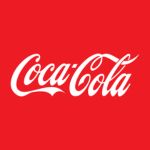The Coca-Cola Company is the world’s largest beverage corporation, operating within the non-cyclical consumer sector, specifically in the non-alcoholic beverage industry. Founded by John Stith Pemberton, the company oversees the licensing, production, and distribution of more than 500 beverage brands. Its main revenue streams include:
Sales of concentrates and syrups: transactions with licensed bottlers responsible for bottling, distribution, and retail of the final product.
Acquired brands and partnerships: Costa Coffee (coffee), Vitaminwater (functional drinks), AdeS (plant-based beverages), and Monster Beverage (energy drinks).
Brand and product licensing: food products, merchandising, and promotional events, generating additional income through royalties.
Premium and health-focused beverages: Coca-Cola Zero Sugar, Smartwater, Honest Tea, and Topo Chico.
Owned bottlers: Coca-Cola FEMSA, Coca-Cola HBC.
Operating in more than 200 countries, Coca-Cola relies on an extensive network of bottlers and distributors to deliver its products to consumers worldwide.
It is estimated that Coca-Cola products account for over 1.9 billion servings consumed daily, within a global beverage market of approximately 58 billion servings per day.
Internationally its shares are listed on the New York Stock Exchange (NYSE) under the ticker symbol KO.
History and Foundation of Coca-Cola
The story of Coca-Cola began when pharmacist John Stith Pemberton introduced a beverage intended to relieve headaches, initially marketed as a medicinal drink sold in pharmacies.
However, in 1889, the formula and brand were sold to Asa Griggs Candler, who began carbonating Coca-Cola and selling it as a soft drink, establishing The Coca-Cola Company.
Since its inception, Coca-Cola has operated under a franchise model, producing only the concentrate used by licensed bottlers to prepare and package the final product.
In 1919, the company was sold to a group of investors led by Ernest Woodruff for US$ 25 million.
Over the following decades, Coca-Cola expanded globally, becoming one of the most recognizable brands in the world.
Historic milestones include the creation of the iconic contour bottle in 1915 and the brand’s consolidation as a cultural symbol during World War II, when the company ensured beverage supplies for U.S. soldiers abroad.
That same year, the company announced its initial public offering (IPO), debuting on the stock exchange with shares initially priced at US$ 40.
In the 1950s, Coca-Cola began diversifying its product portfolio with the launch of Fanta, created in Germany during the war, and Sprite in 1961.
During the 1990s, the company accelerated its expansion into emerging markets, particularly in Asia, Africa, and Eastern Europe, following the end of the Cold War.
In 2007, Coca-Cola introduced the PlantBottle, a bottle partially made from plant-based materials, reinforcing its commitment to sustainability.
The company’s current leadership is headed by James Quincey, who has served as CEO since 2017, steering Coca-Cola toward innovation and adaptation to new consumer trends.
Additional Information
The Company The Coca-Cola Company (United States), is listed on NYSE with a market value of $ 343.47 Billions, having an equity of $ 34.28 Billions.
With a total of 86.200 employees, the company is listed in the sector of Consumer/Non-Cyclical and categorized in industry of Beverages (Nonalcoholic).
In the last 12 months the Company had a revenue of $ 47.94 Billions, which generated a profit in the amount of $ 13.11 Billions.
As for its main indicators, the Company has a P/E ratio of 26.21, a P/BV ratio of 10.02 and in the last 12 months the dividend yield of KO was at 2.56%.
The Company is traded internationally through the ticker KO.







 Tesla
Tesla





























